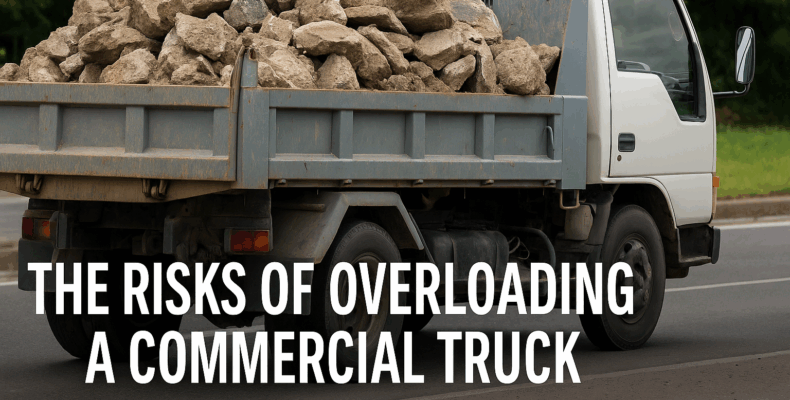The Risks of Overloading a Commercial Truck
Overloading a commercial truck may seem like a way to increase efficiency. However, it comes with serious consequences—both financially and legally. Whether you’re transporting goods across long distances or using trucks daily for local deliveries, it’s essential to understand the hidden dangers of exceeding the legal load limit.
In this article, we’ll explain the risks of overloading, provide examples, and show how proper truck selection can protect your drivers, your cargo, and your bottom line.
Why Do Businesses Overload Trucks?
Often, business owners try to maximize profits by transporting more in fewer trips. While this sounds smart, it often leads to:
-
Higher maintenance costs
-
Risk of accidents
-
Damage to road infrastructure
-
Potential legal penalties
Moreover, insurance claims can be denied if your truck is found to be overloaded during an incident.
Top Risks of Overloading a Commercial Truck
Let’s look at the most critical dangers:
1. Brake Failure and Increased Stopping Distance
When a truck is overloaded, the braking system works harder. As a result, it takes longer to stop. On wet or downhill roads, this can be deadly.
2. Tire Blowouts
Too much weight increases pressure on tires. Over time, the rubber heats up and may explode, especially during long hauls. Even one tire failure can cause a rollover.
3. Frame and Suspension Damage
Truck frames and suspensions are designed for specific weight limits. When overloaded, these systems wear out faster and may fail entirely, leading to costly repairs or permanent damage.
4. Engine and Transmission Strain
Extra load means more power is needed. Therefore, your truck’s engine and transmission must work harder, using more fuel and shortening engine life.
5. Legal and Financial Penalties
In many countries, weight checkpoints are common. If caught, you may:
-
Pay heavy fines
-
Face delivery delays
-
Be forced to unload excess cargo
-
Lose operating licenses in extreme cases
How to Avoid Overloading Risks
Fortunately, you can protect your business by making better decisions.
✅ Choose the Right Truck Size
Every business is different. Whether you need a light-duty Toyota Dyna, a medium Isuzu Forward, or a heavy-duty Hino Profia, choose based on your typical cargo weight.
Explore trusted suppliers who can help you make the right match:
👉 Top 5 Trusted Japanese Used Truck Exporters for Global Buyers
✅ Use Onboard Weighing Systems
Newer Japanese trucks often support digital weight monitoring. This helps your team avoid overloading even during high-demand periods.
✅ Train Drivers and Loaders
Operators must understand that safety comes before speed. Train your team to recognize weight limits and secure cargo evenly.
Best Japanese Trucks for Safe Load Management
Here are some reliable models known for handling safe loads efficiently:
| Model | Class | Ideal Use Case |
|---|---|---|
| Toyota Dyna | Light-duty | City delivery, small businesses |
| Isuzu Elf | Light-duty | Urban logistics, construction |
| Mitsubishi Canter | Medium-duty | Agriculture, construction |
| Hino Ranger | Medium-duty | Regional transport |
| Hino Profia | Heavy-duty | Cross-country, industrial loads |
Each of these models is available on the Japanese used truck market and can be shipped worldwide.
Why Buy from Professional Exporters?
Buying from trusted Japanese exporters guarantees:
-
Proper inspection and load rating
-
Clean documentation
-
Vehicle condition reports
-
Professional advice on model selection
Don’t take chances—choose from this list:
👉 Top 5 Trusted Japanese Used Truck Exporters for Global Buyers
Conclusion: Safety First, Profits Follow
Overloading a truck is never worth the risk. It endangers people, damages property, and can ruin your business reputation. Instead, invest in trucks that match your operational needs and work with exporters who prioritize safety and compliance.
Avoid shortcuts. Choose smarter, safer, and more sustainable transport options.
